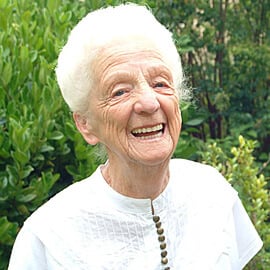Did you know an Italian study recently found vitamin E may help seniors maintain their vim and vigour?
Measuring the blood vitamin levels of 698 people aged 65 and over, researchers used three tests - a short walk, balance and standing up from a seated position - to gauge their physical functioning. They discovered that volunteers with lower levels of vitamin E performed worse on these tests than those with higher levels of the vitamin, while folate, B6, B12 and D had no effect.
Reading this, we at Villages decided to put together all the information you need about vitamin E - what it is, from where you can get it and what it can do for your heartiness and health.
What is Vitamin E?
Vitamin E is a fat-soluble vitamin with antioxidant properties, meaning it can protect tissue from damage caused by free radicals that harm cells, tissues and organs.
Free radicals are highly reactive substances that result from normal metabolism as well as exposure to environmental factors such as ultraviolet light and smoking. They cause harm to cells by attacking their membranes, proteins and DNA and ultimately contribute to the development of health problems like heart disease and cancer. Vitamin E is particularly important in protecting blood cells, the nervous system, skeletal muscle and the retina from free radical damage.
There are two main groups of vitamin E compounds: the tocopherols and the tocotrienols, each containing four isomers. Of these, the alpha-tocopherol isomer is the only form of vitamin E the human body can use.
Why use Vitamin E?
Results from scientific studies suggest vitamin E may help lower the risk of chronic conditions such as heart disease, stroke, diabetes and cataracts. An increased intake of vitamin E may also slow the oxidation of bad cholesterol, prevent blood clot formation, enhance immune response and benefit the nervous system. It has even been linked with a decreased incidence of breast and prostate cancers.
These findings have yet to be proven conclusively - much is still unknown and under investigation. So we spoke with Mim Beim, Sydney's most esteemed naturopath and regular on the Nine Network's Fresh, to find out how in her experience vitamin E can benefit your health.
We started by discussing how products that contain vitamin E - labelled tocopherol acetate, tocopherol lionleate or tocopherol nicotinate - are commonly used in the belief that vitamin E is good for the skin.
Mim: "Yes, I quite like vitamin E for external use. It is used in a lot of expensive cosmetics as an antioxidant. Adding it into a moisturiser can be good for anti-ageing. It is also magic for healing scars, and to prevent stretch marks when people are losing weight."
For scarring, she suggests: "After the wound has closed and is dry, rub in the contents of a vitamin E capsule or some vitamin E cream every day." And with regard to stretch marks: "Split a capsule into some sorbolene cream and massage into the tummy or thighs."
Mim explained vitamin E can be used in the treatment of varicose veins - "500 IU of vitamin E should be taken daily to improve circulation," and gingivitis - "Vitamin E is an excellent healer. On alternate days, bite through a 250 mg vitamin E capsule."
She also recommended it for menopausal women suffering from hot flushes and vaginal dryness: "A vitamin E capsule split open and inserted into the vagina nightly can be very helpful."
In Mim's experience, the vitamin can further provide relief for those with rheumatoid arthritis: "Selenium, vitamin E, zinc and manganese have proved helpful in the treatment of RA. Take a combination daily." It can even boost your memory, Mim declaring it should be taken every day as "it increases the brain's circulation and oxygenation of nerve tissue."
From where can I get vitamin E?
While the body can absorb both natural and synthetic forms of alpha-tocopherol, natural forms - either from food or natural-source supplements - are used more efficiently.
Mim believes "it's best to try and get vitamin E from your foods." She advises getting it from "egg yolk, oils, avocado, seeds and nuts. Things like tahini - sesame seed paste. You can grind these seeds, or buy an almond paste that is like a peanut butter."
The most abundant sources of vitamin E are:
- Fish
- Fruits such as coconut, kiwi and sea buckthorn berry
- Goat's milk
- Green, leafy vegetables such as spinach and asparagus
- Nuts such as almond, hazelnut, walnut and peanut
- Oils such as palm, sunflower, corn, soybean and olive oil
- Sunflower seeds
- Wheat germ, barley and oats
- How much vitamin E do I need?
A person's daily requirement for vitamin E varies with age, gender, overall health and the amount of polyunsaturated fats regularly consumed. Polyunsaturated fats tend to be easily oxidised - so if a person's diet is high in foods containing polyunsaturated fats, their need for vitamin E is increased.
That said, the recommended dietary allowance for vitamin E is 15 milligrams. Supplements list vitamin E in terms of international units or IUs. 15 milligrams is equivalent to 22 IUs of d-alpha tocopherol (natural) or 33 IUs of d,l-alpha tocopherol (synthetic).
If you choose to take a vitamin E supplement, be sure to tell your doctor. Very high dosages are not recommended as vitamin E can act as an anticoagulant and may cause bleeding disorders in people taking blood-thinning medications.
What remains is, whether to prevent wrinkles, relieve achey joints or perhaps improve your memory, vitamin E is an integral part of your dietary needs. Take heed of that Italian study, and eat up!
For more information on Mim Beim, please call (02) 9233 5362 or click here.
Vitamins are the foundation to great skin. In the high-stakes game of quality skincare, cult brand Alpha-H has an ACE up its sleeve, a formidable formula of antioxidants: vitamins A, C and E.
Dermatologists and skincare professionals have long known the role these vitamins play in good skin health. And we all know that a healthy diet, rich in vitamins and nutrients, is the best defence against illness, disease and premature ageing. Without the right balance of vitamins, skin becomes dry, sluggish and susceptible to a number of disorders. ACE stacks the decks in our skin's favour by delivering vitamins back to where they belong.
So why does our skin need vitamins A, C and E?
Vitamin A is found in nutritious foods such as sweet potatoes, spinach, apricots and liver, and plays an essential role in night vision, bone growth, reproduction and skin health. Skin suffering from vitamin A deficiency falls prey to photo damage, destruction of collagen and elastin - all of which result in dry and ageing skin. By boosting vitamin A levels, the rate of skin turnover is increased and collagen production promoted, lending a more supple, youthful appearance to the skin.
Vitamin C is essential to our very survival, yet it is a vitamin we are unable to produce ourselves. We must therefore introduce the vitamin to our bodies regularly through fresh fruit and vegetables, certain meats or in supplement form. Vitamin C is necessary for the production of collagen, the essential building block of skin. Collagen fibres riddle our bodies, providing firm but flexible structure, and their health is one of the most important factors in determining the appearance and integrity of our skin.
Vitamin E, as discussed above, helps promote clear and flexible blood vessels that allow the passage of oxygen-rich blood to the heart and throughout the body - especially the skin. Vitamin E protects the skin from sun damage, reduces the appearance of fine lines and generally improves skin smoothness.






